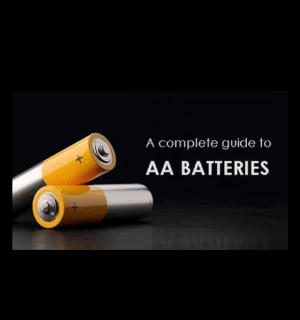Lithium-ion batteries have revolutionized the way we power our devices and vehicles, offering numerous advantages over traditional battery technologies. In this article, we will delve into the benefits of lithium-ion batteries, explore their applications across various industries, discuss safety considerations, highlight their environmental impact, and touch upon future developments in this field. Let’s dive in!
With the ever-increasing demand for portable and efficient energy storage solutions, lithium-ion batteries have emerged as the go-to choice for many applications. These rechargeable batteries have become indispensable in our daily lives, powering smartphones, laptops, electric vehicles, and much more. Their superior performance, reliability, and versatility make them a preferred option over other battery types.
Lithium-ion batteries have revolutionized energy storage with their high energy density, long lifespan, fast charging, portability, and low self-discharge. They find applications in consumer electronics, electric vehicles, renewable energy storage, medical devices, and aerospace and defense. While safety considerations and environmental impact must be addressed, ongoing research and development are driving advancements in areas such as energy density, charging time, safety features, and alternative materials. With their continuous improvements and expanding usage, lithium-ion batteries are poised to play a vital role in our future energy needs.
What are Lithium-Ion Batteries?
Lithium-ion batteries, often referred to as Li-ion batteries, are a type of rechargeable battery that uses lithium ions as the main charge carrier. They are composed of one or more cells, each consisting of positive and negative electrodes separated by an electrolyte. During charging, lithium ions move from the positive electrode (cathode) to the negative electrode (anode), and during discharge, the process reverses.
Advantages of Lithium-Ion Batteries
High Energy Density
One of the full-size benefits of lithium-ion batteries is their excessive power density. This indicates they could store a big amount of power in a surprisingly small and lightweight bundle. As a result, lithium-ion batteries are perfect for applications where size and weight are critical, such as portable electronics and electric vehicles.
Longer Lifespan
Lithium-ion batteries offer an extended lifespan compared to traditional batteries. They can withstand hundreds of charge and discharge cycles without significant capacity loss. This longevity ensures that devices and vehicles powered by lithium-ion batteries can be used for an extended period before needing a replacement, saving both money and resources.
Fast Charging
Another notable advantage of lithium-ion batteries is their ability to charge quickly. They have a high charge acceptance rate, allowing them to recharge at a much faster rate than other battery chemistries. This rapid charging capability is particularly beneficial for electric vehicles, where reducing charging time is crucial for improving convenience and adoption.
Lightweight and Portable
Lithium-ion batteries are renowned for their lightweight and portable nature. Unlike older battery technologies, such as lead-acid batteries, lithium-ion batteries offer a higher energy-to-weight ratio, making them ideal for applications where weight reduction is essential. The lighter weight contributes to increased portability and improved user experience.

Low Self-Discharge Rate
A key advantage of lithium-ion batteries is their low self-discharge rate. Traditional batteries tend to lose charge over time, even when not in use. In contrast, lithium-ion batteries have a much lower self-discharge rate, allowing devices to retain their charge for longer durations. This characteristic ensures that your gadgets are ready to use whenever you need them, even after being idle for extended periods.
Wide Temperature Range
Lithium-ion batteries can operate efficiently across a wide temperature range. They perform well in both high and low temperatures, making them suitable for applications that require reliable performance in extreme environments. This versatility further enhances their usability in a variety of industries, including aerospace, automotive, and renewable energy.
The Advantages of the 16340 CR123A Lithium-ion Battery
When it comes to exploring the advantages of lithium-ion batteries, the 16340 CR123A stands out as a remarkable example. With its compact size and impressive energy density, this battery offers numerous benefits across a wide range of applications. Whether it’s powering portable electronics, flashlights, or medical devices, the 16340 CR123A provides long-lasting and reliable power.
It boasts a higher capacity and a lower self-discharge rate compared to traditional alkaline batteries, making it a cost-effective and eco-friendly choice. Additionally, the 16340 CR123A battery offers faster charging times and a longer lifespan, ensuring optimal performance and convenience. Embrace the advantages of lithium-ion technology with the versatile and efficient 16340 CR123A battery.
Applications of Lithium-Ion Batteries
Lithium-ion batteries find applications across diverse industries, transforming the way we power our world. Here are some key areas where these batteries are extensively used:
Consumer Electronics
Lithium-ion batteries have become the power source of choice for consumer electronics, ranging from smartphones and tablets to wearables and wireless headphones. Their high energy density, long lifespan, and compact size make them ideal for powering these portable devices.
Electric Vehicles
The automobile enterprise has witnessed a big shift in the direction of electric-powered automobiles (EVs) in recent years. Lithium-ion batteries provide the necessary energy storage capacity to power these vehicles, enabling emission-free transportation and reducing reliance on fossil fuels.
Renewable Energy Storage
As renewable energy sources like solar and wind become increasingly prevalent, the need for efficient energy storage solutions rises. Lithium-ion batteries are employed to store excess energy generated during peak production periods and release it when demand is high, ensuring a stable and reliable power supply.
Medical Devices
Lithium-ion batteries play a vital role in the healthcare sector, powering a wide range of medical devices. From pacemakers and insulin pumps to portable medical equipment, these batteries provide reliable and long-lasting energy sources for critical patient care.
Aerospace and Defense
The aerospace and defense industries rely on lithium-ion batteries for various applications. These batteries power aircraft systems, satellite systems, unmanned aerial vehicles (UAVs), and other military equipment, delivering lightweight and efficient energy storage solutions.
Safety Considerations
While lithium-ion batteries offer numerous advantages, it’s crucial to be aware of certain safety considerations associated with their use.
Thermal Runaway
Lithium-ion batteries are susceptible to a phenomenon known as thermal runaway, which can lead to overheating and, in rare cases, combustion. Manufacturers employ various safety measures, such as thermal management systems and advanced battery management systems, to mitigate the risk of thermal runaway.
Overcharging and Over Discharging
Overcharging or over-discharging lithium-ion batteries can damage their cells and reduce their overall performance and lifespan. It’s essential to use proper charging equipment and adhere to recommended charging procedures to avoid potential issues.
Storage and Transportation Safety
Proper storage and transportation of lithium-ion batteries are crucial to prevent accidents. Following guidelines provided by manufacturers and regulatory bodies ensure safe handling and reduces the risk of fire or other hazards associated with mishandling or improper storage.
Environmental Impact
As we embrace sustainable practices, evaluating the environmental impact of battery technologies becomes vital.
Recycling and Disposal
Lithium-ion batteries can be recycled, allowing for the recovery of valuable materials like lithium, cobalt, and nickel. Proper recycling procedures ensure the responsible management of these batteries and minimize environmental harm.
Reduced Carbon Footprint
The adoption of lithium-ion batteries in various industries, particularly in electric vehicles and renewable energy storage, contributes to the reduction of carbon emissions. By transitioning from fossil fuel-based technologies to cleaner alternatives, we can mitigate the impact of climate change and work towards a greener future.
Future Developments
The field of lithium-ion battery technology is continuously evolving, and researchers and manufacturers are actively working on advancements to enhance their performance and address existing limitations. Some areas of focus include increasing energy density, reducing charging time, improving safety features, and exploring alternative materials for battery construction.
Conclusion
Lithium-ion batteries have revolutionized energy storage, offering significant advantages in terms of energy density, lifespan, fast charging, portability, and low self-discharge. These batteries have found widespread use in consumer electronics, electric vehicles, renewable energy storage, medical devices, aerospace, and defense.
While safety considerations and environmental impact must be acknowledged, ongoing research and development promise even more exciting developments in this field. With their continuous improvements and expanding applications, lithium-ion batteries are set to play a vital role in powering our future.
FAQs
Are Lithium-Ion Batteries Safe to Use?
Yes, when used correctly and following recommended guidelines, lithium-ion batteries are generally safe. However, precautions should be taken to prevent mishandling or overcharging, as these can lead to safety issues.
How Long Do Lithium-Ion Batteries Typically Last?
Lithium-ion batteries can last several years, depending on usage patterns and charging practices. They are designed to withstand hundreds of charge and discharge cycles before experiencing a significant capacity loss.
Can Lithium-Ion Batteries Be Recycled?
Yes, lithium-ion batteries can be recycled. Recycling processes allow for the recovery of valuable materials and minimize environmental impact. Proper recycling facilities and guidelines should be followed for responsible disposal.
Can I Use Lithium-Ion Batteries in Extreme Temperatures?
Lithium-ion batteries can operate efficiently across a wide temperature range. However, extreme temperatures, both high and low, can affect their performance and lifespan. It’s best to operate them within the recommended temperature limits.
What Advancements Can We Expect in Lithium-Ion Battery Technology?
Ongoing research and development in lithium-ion battery technology aim to improve energy density, charging time, and safety features, and explore alternative materials. These advancements will lead to even more efficient and reliable energy storage solutions.

